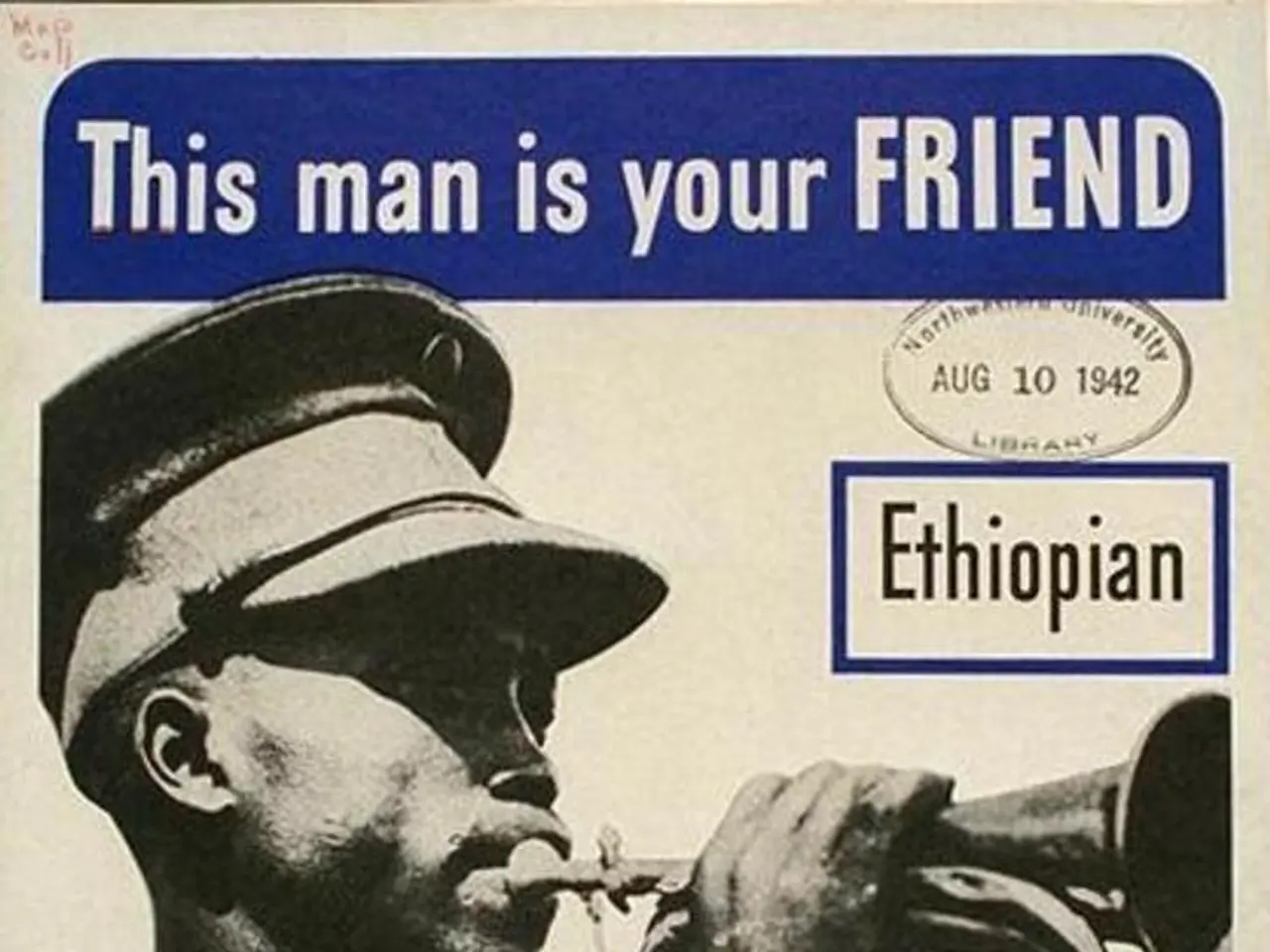Germany Pursues Legal Action Against American Author for Satirical Swastika Illustration, Alleging Comparison of Covid Policies to Nazi-era Strategies
In a striking case that has raised concerns about free speech and the criminalisation of political dissent, American left-wing playwright, author, and political satirist C.J. Hopkins finds himself embroiled in a legal battle in Germany. Hopkins' controversy stems from a series of satirical tweets comparing Germany's COVID-19 measures to Nazi totalitarianism.
Hopkins has defiantly refused to back down, stating that this is not how things work in a democratic society and asserting that he will not lie for the authorities. He argues that his tweets, which featured the cover art of one of his books depicting a swastika behind a medical mask, were intended as a critique of Germany's COVID-19 response, which included strict lockdowns, business closures, mandatory mask-wearing, and the suspension of basic civil liberties.
The basis of Hopkins' prosecution is his tweets comparing Germany's draconian COVID-19 measures to the rise of Nazi totalitarianism. However, it is worth noting that German media outlets like Der Spiegel have used similar imagery, but have not faced the same legal consequences as Hopkins. This raises questions about selective prosecution of dissenting voices, particularly when they critique the state.
Hopkins' case represents more than one man's fight against unjust prosecution-it reflects the growing threat to free expression across Western democracies. Governments are increasingly weaponizing hate speech laws to silence critics, framing dissent as dangerous or extremist behavior. If Hopkins loses this fight, other governments will likely feel emboldened to use similar tactics against their own citizens, setting a dangerous precedent for criminalizing any expression that challenges state authority.
The legal and financial toll on Hopkins has been immense. He has faced potential fines, imprisonment, and bankruptcy for his satirical tweets. His book has been banned in Germany, and his tweets have been censored. This has significantly damaged his income and reputation as a writer.
Despite being acquitted during his first trial, the German authorities appealed the acquittal, resulting in Hopkins' official label as a "hate speech" criminal. This persecution serves as a warning, as it represents the criminalization of political dissent in Germany.
The fight for free speech is far from over, and it's up to us to ensure history doesn't repeat itself. If C.J. Hopkins is defeated, the blow to free speech will be profound. We must continue to stand with him and protect the right to speak freely, no matter how uncomfortable that truth may be for those in power.
As of July 2025, there is no publicly documented or ongoing legal dispute of that nature, but it is essential to consult legal databases or news sources directly focused on German legal matters and freedom of speech cases for the most accurate and up-to-date information.
- In the ongoing debate about free speech and the criminalization of political dissent, the case of C.J. Hopkins, a US-based playwright, undeniably raises crucial questions about civil liberties and freedom of expression.
- Hopkins' legal battle in Germany, inspired by his satirical tweets critical of Germany's COVID-19 response, exemplifies the growing concern over governments using hate speech laws to silence critics, a trend that analysts debate in articles concerning general-news and crime-and-justice.
- The future consequences of Hopkins' case could be profound, as it may lead to increased crackdowns on free speech and embolden authorities to prosecute dissenting voices in the name of maintaining order.
- Should Hopkins ultimately lose his legal battle, it might signal a wider erosion of civil liberties and a dangerous precedent in which truthful political dissent is stifled and repressed by powerful forces, threatening the very essence of democracy and human rights.








